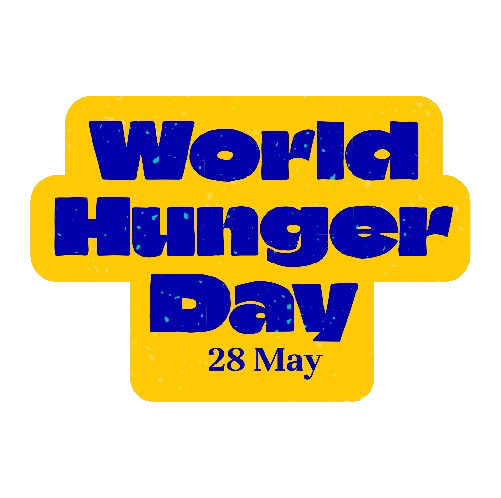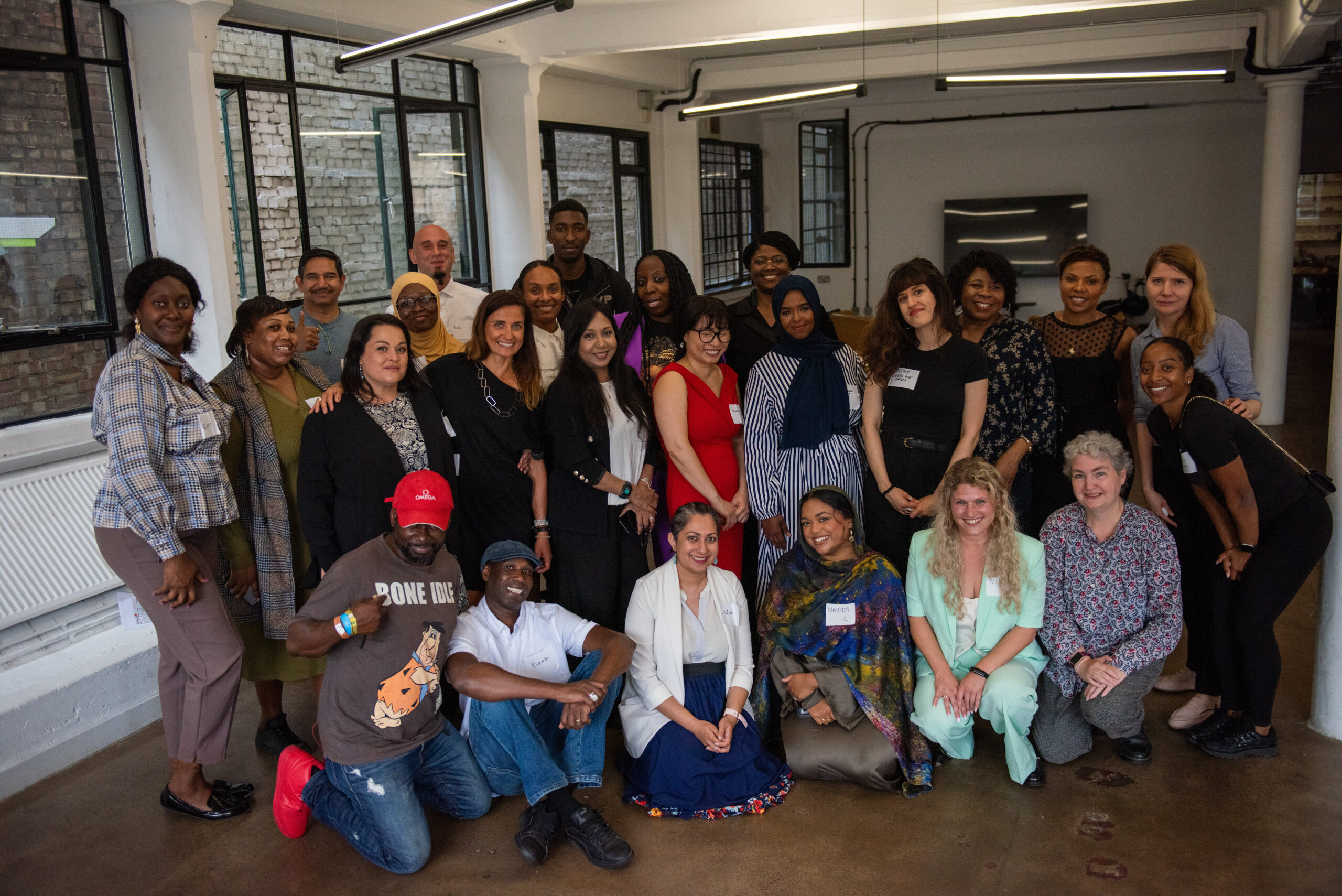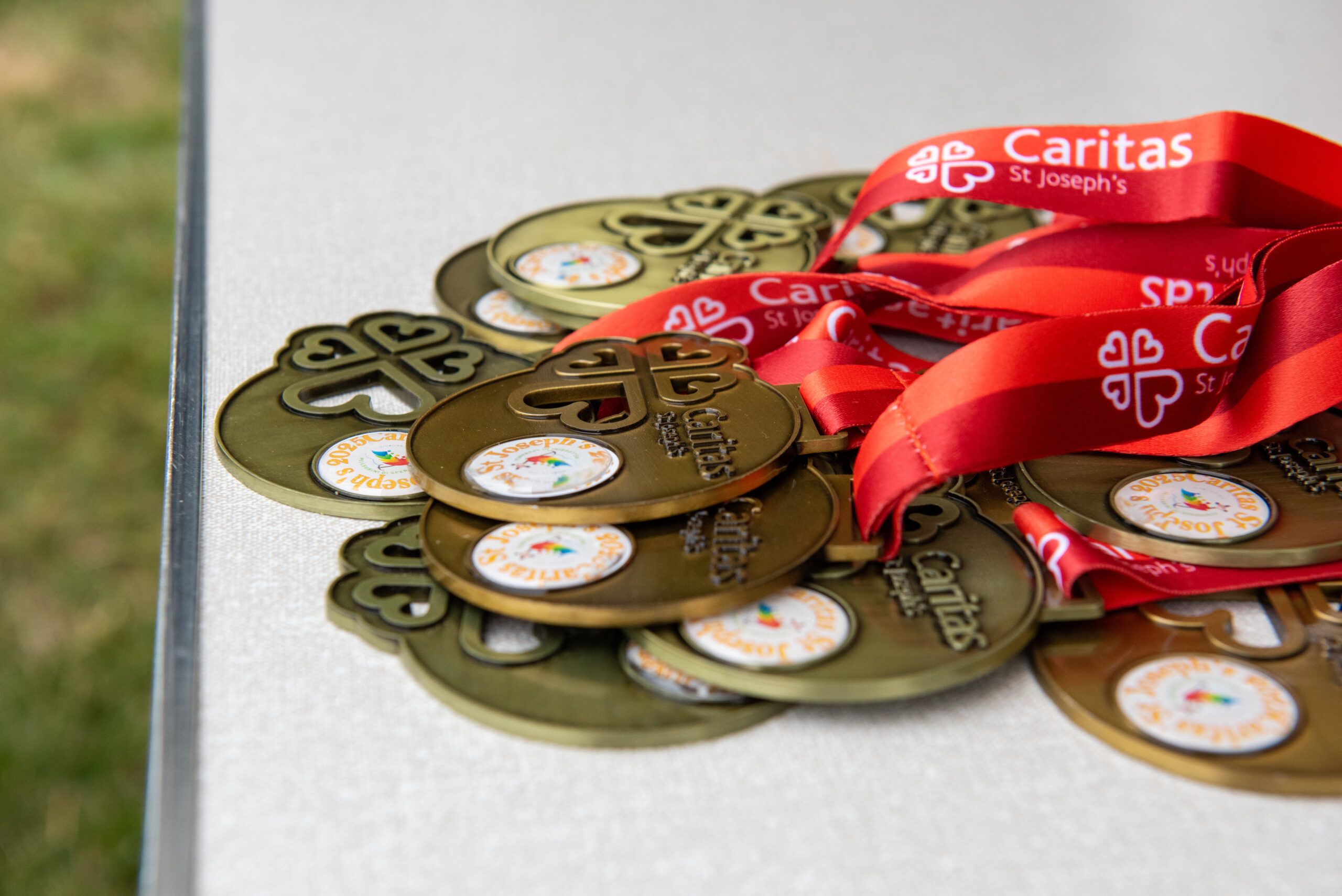On World Hunger Day, Niki Psarias who joined Caritas Westminster in March 2022 and is Project Lead for Food, reflects on the power of food and community
World Hunger Day takes place every year on May 28th, a global campaign established by The Hunger Project, to highlight sustainable solutions to hunger. I am proud to say that I managed the campaign for seven years, in a former role. I saw a global movement against poverty grow and grow, reaching people in communities around the world, and online.
The end of hunger and poverty is something we can all get behind. And it needs all of us.

My practice for the past decade has been to harness the power of food as a medium to do more, in hunger and poverty relief, international development and peacebuilding. And very often, this “more” has been to create community and change.
Food is powerful because it elicits so many emotions, and touches many important areas of life, beyond nutrition and our physical wellbeing. It touches identity, history, memory, taste and individuality to name a few.

One powerful emotion that can come from our experience with food is safety. (Although it must be acknowledged that traumatic experiences with food could leave us feeling unsafe). For many of us, we feel safe around food because we know it, we’re familiar with it, it’s not an unusual thing to us and is something that we (hopefully) consume regularly. Additionally, food is enshrined in so many of our cultures, practices and rituals as a medium of expressing gratitude, and expressing love – from the box of chocolates we give to say thank you to a friend, to the grapes and fruit we take when someone is unwell, and the cake we bake to show we care.
Across the Diocese of Westminster, before the pandemic, but particularly during it, local people chose food as a way to come together and express their love and support for others. They set up food provision projects and food banks, or extended existing food sharing initiatives – building bonds and community through food. As Fulvio Ornato, Head of Volunteering at CAFOD expressed so beautifully recently: Helping your neighbour is a way to build your community. Helping your neighbour is a way to take care of your community.
Community project, Finchley Foodbank, saw the numbers of people using their service increase by 400% during the pandemic. In 2021, an average of 301 people were supported by the food bank on a weekly basis.
In Palmer’s Green, St Monica’s Foodbank was set up as a temporary pop-up project to last six weeks but is still running two years later, supporting up to 350 people a week.
At St Ignatius, Stamford Hill, a soup kitchen runs four times a week, providing hot and comforting meals for up to 60 guests.
And in West London, at Our Lady of Fatima, White City, members of the community food share project can enjoy a cup of tea or coffee together, before choosing which foods they would like for themselves and their families.
We didn’t want to sit at home doing nothing when we knew there was a lot of need within our community, and whilst you can’t do everything, we thought we could at least do a little. – Gerry Bell, project leader at St Monica’s Foodbank.
Community through food extends beyond volunteers at parishes and schools, and project members. It is also in the partnerships and relationships that grassroots projects have built with local businesses, shops, restaurants, who donate each week to support their community. At Copenhagen Street Foodbank, for example, a partnership with a local restaurant provides cooked takeaway meals that foodbank members can take home. And project partnerships with organisations like The Felix Project, City Harvest, FareShare, FoodCycle, Neighbourly, Your Local Pantry, Olio, Too Good to Go, and more, build a city-wide, nation-wide community through food.
The World Hunger Day campaign highlights sustainable solutions to poverty, and in my work, food is always the starting point to doing more. Across the diocese too, projects work hard to help people to meet their basic needs but are also growing to support members to end poverty for their families for good. Some project leaders and volunteers have attended training on financial resilience, or how to support people to get into dignified work – ways to help break the cycle of poverty.

At Hitchin Pantry, a community supermarket in Hertfordshire, members shop for a fixed small fee, investing in the sustainability of the project, as well as growing a strong community membership aspect to the initiative that can also build support to help people break that cycle.
At the Stokey Community Food Shop, members have access to culturally appropriate food, which can be difficult to find at foodbanks, and for a much more affordable price than in stores – a sustainable solution to helping people meet their cultural and dietary needs, and also an expression of how important food is to our cultural identity.
The power of food and community can of course also bring new friendship, connection and even fun:
Maria volunteers weekly at the the Community Food Share Project, in White City, West London, alongside her mum, who travels across London every single week to be a part of community through food. Maria says: Food is something that helps others, and myself as well, to be together and to share with different kinds of people
The work and the love of communities through food is certainly beautiful but it is also vital, and with 2.3 million Londoners living below the poverty line, it is clear that it will continue to be so.
On this World Hunger Day, and every day, we stand in partnership and solidarity with those living in poverty, and projects and volunteers harnessing the power of food and community to work tirelessly towards its end.
To find out more about food projects across the diocese and ways to support, contact the Caritas Food Collective: cfc@rcdow.org.uk
All photos by Marcin Mazur/CBCEW





